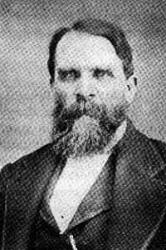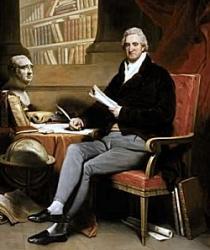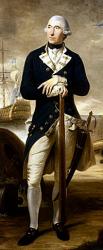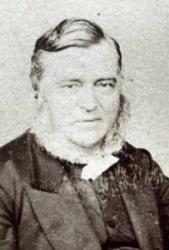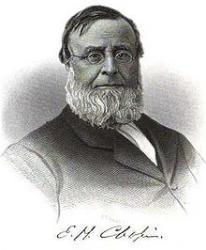
1809 - 1870 Hymnal Number: d514 Author of "Lord, in this sacred hour" in The Saints' Harp Bulfinch, Stephen Greenleaf, D.D. This Unitarian minister was born at Boston, June 18, 1809, and removed to Washington in 1818, his father being the architect of the Capitol. He graduated at Columbian College and the Cambridge Theological School. In 1831 lie was ordained at Charleston, S.C., as assistant to Dr. Gilman. Subsequently he was pastor at Pittsburg, Pennsylvania; Washington, 1838; Nashua, New Hampshire, 1845; Dorchester, Mass., 1852; and "East Cambridge, Mass., 1865. He died at the last place, Oct. 12, 1870. His works include:—
(1) Contemplations of the Saviour; A Series of Extracts from the Gospel History, with Reflections and Original and Selected Hymns. Boston, Carter and Hendee, 1832. This has been reprinted in England. (2) Poems, Charleston, S.C., 1834. (3) Lays of the Gospel, 1845. In addition to these works, which contain his original hymns, he also published (4) The Harp and Cross, a selection of hymns, in 1857.
Those of his hymns which have attained ta the greatest popularity are:—
1. Hail to the Sabbath day. Sunday. In the Contemplations, &c, p. 45. It is appended to Sect. xii. on the “Walk through the corn¬fields," and is in 5 stanzas of 4 lines. It is in extensive use both in Great Britain and America, and is the best known of this author'ess hymns. In many collections it begins with st. ii., " Lord, in Thy [this] sacred hour."
2. Hath not thy heart within thee burned? Presence of Christ. In the Contemplations, &c, p. 148, as the accompanying hymn to the Reflections on Jesus appearing to His disciples on their way to Emmaus, It is in 5 stanzas of 4 lines and is given in the Collections of Beard, Martineau, and others in Great Britain.
3. 0 suffering friend of human kind. Passiontide. The hymn in 4 stanzas of 4 lines appended to Sect. xxxv. on "Peter's confession of Christ," in the Contemplations, &c, p. 109. It ranks next in popularity to ”Hail to the Sabbath day."
In addition to these hymns which best represent Dr. Bulfinch's power? as a sacred poet, the following are also in limited use:—
4. Burden of shame and woe. Crucifixion.
5. Holy Son of God most high. Miracles of Christ.
6. How glorious is the hour. The New Life.
7. It is finished! Glorious word. Good Friday.
8. There is a strife we all must wage. Life's Duty. These are from his Poems, 1834. The next—
9. What power unseen by mortal eye. Cure of Nobleman's Son. From the Contemplations, &c, p. 56.
10. In the Saviour's hour of death. Good Friday. Also from the Contemplations, p. 142:
Dr. Bulfinch's hymns were made known to English readers through Beard's Collection, 1837, in which 19 were given. His hymns throughout are noted for solid and tranquil piety, and deserve a wider circulation than has been accorded to them. They embrace some good hymns on the miracles of Christ. [Rev. F. M. Bird, M.A.]
-- John Julian, Dictionary of Hymnology (1907)
====================
Bulfinch, Stephen Greenleaf, p. 191, ii. Several of this authors hymns, not noted in this Dictionary, were given in Longfellow and Johnson's Book of Hymns , 1846-8. Additional hymns by him in English common use are:—
1. Benignant Saviour! 'twas not Thine. The Compassion of Christ . From his Contemplations of the Saviour , &c, 1832. In Horder's Congregational Hymns. 1884, it reads “Most gracious Saviour! 'twas not Thine."
2. We gather to the sacred board. Holy Communion. This in Horder is from Bulfinch's Communion Thoughts, 2nd ed., 1852.
--John Julian, Dictionary of Hymnology, Appendix, Part II (1907)
Stephen Greenleaf Bulfinch


 My Starred Hymns
My Starred Hymns